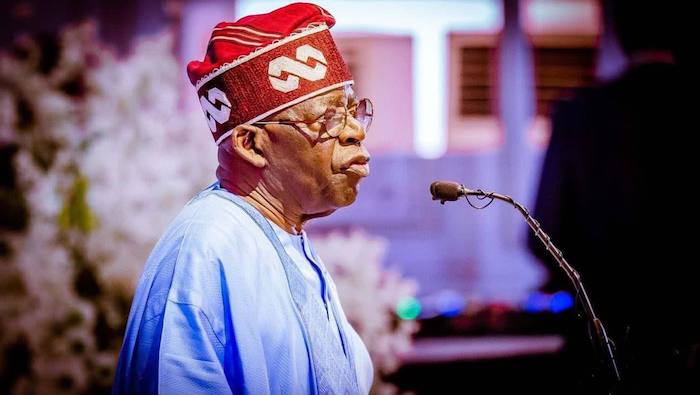This week, most Nigerians are coming to terms with the announcement of the birth of a new terror group operating in the North of Nigeria. It is called the Lakurawa group and operate out of Sokoto and Kebbi states, where they have already established control over the last few months. Like with the emergence of other terror groups operating out of Nigeria, the rhetoric around these ones has been the same. They are a mix of locals and foreigners.
Yet, contrary to the announcement of their existence this week, they have been operational in Nigeria since at least 2017 or 2018. The circumstances of their presence in Nigeria are rather interesting. They were invited.
As unfathomable as that sounds, a 2022 paper by Murtala Rufa’i, James Barnett, and Abdulaziz Abdulaziz indicated that they were invited by a local community head, not as terrorists but as vigilantes to help them combat the bandits that had held those communities to ransom for long. Their methods soon became untenable even for the people who invited them, and they were then uninvited.
The problem was that the damage had already been done. They had tasted the ease of doing terror business in Nigeria, got used to the fact that they can roam through vast expanses unchallenged by security operatives, that they can tax communities, flog whomever they wish, impose laws, and basically do as they please. The fact that about 200 of them streamed into the country in one go, all those years back, with no checks, and everything they experienced in the country is indictment enough for the Nigerian state. Their recent return is an even bigger indictment.
Ogun PDP: Judge handling suit against our LG candidates was Abiodun’s appointee
There are many levels of system failures that have resulted in the birth of this newly acknowledged terror group in Nigeria, adding to the menace of Boko Haram, the ubiquitous bandits, and tribal militia rampaging the North. In the South East, IPOB, controlled by a Finland-based stooge, is making the region ungovernable and insecure even for the people they claim they are fighting for.
Nigeria has been in an active state of war with terror for over a decade—at least since 2011 when the war against Boko Haram was formally declared. You would think that we have developed a core of battle-hardened military by now. You would think that we would have known enough about terror and terror organisations operating in Nigeria to actively take measures to prevent the birth of new ones.
In the first instance, Boko Haram should not have happened because we have had experience dealing with the Maitatsine group, which, in retrospect, was a sort of terror organisation before terrorism became fashionable and lucrative. One would think Nigeria would have developed strategies to deal with such eventualities going forward. But we didn’t. We didn’t when Boko Haram surfaced, and we haven’t when the bandits surfaced. And now the Lakurawas have emerged because we never learnt our lessons.
First, the fact that they were invited is a major failure of the system. Of course, the responsibility for that would have to be placed on the community leaders who decided that was a good idea in the first place. But having said that, we must acknowledge the desperation that led them to turn to a terror-wannabe organisation for help. It was simply because they felt abandoned by the Nigerian state. Having been inundated by bandit groups raiding their communities and the government failing to protect them, they resorted to whatever help would be available to them.
The second system failure was from an intelligence analysis perspective. When Libya happened, destabilised by groups backed by foreign powers and turned into a savage land, Nigeria failed to properly assess the potential security implications of that situation on its security. It did not take any measure to inoculate itself against those risks. Since the emergence of Boko Haram, Nigeria has continued to insist that there was a direct connection between the situation in Libya and Boko Haram in terms of access to weapons and training that the terror group had.
So one would think that with the coup in Niger last year that collapsed the security arrangements between Nigeria and the Niger Republic, Nigeria would have assessed potential risks as a result and taken measures to tackle them before they manifested. Clearly, we didn’t; otherwise, we wouldn’t be here, would we?
Yet, in announcing the Lakurawa as the new terror group in the Northwest, the Nigerian military made a direct connection between them and the fallout of last year’s coup in the Niger Republic. Nigeria, as the leader of ECOWAS, has failed to read the room and managed an ill-advised response to the coup that has resulted in the fracturing of ECOWAS, the collapse of the security arrangements it had in the region, and the emergence of this terror group.
These failures have meant that instead of nipping the problem in the bud, we are now stewing in it. To address it now will cost more, in terms of funds and human resources, both on the part of Nigerian soldiers and civilians. If the military is making the announcement, it is because the Lakurawas have taken root and are deeply entrenched.
These are mistakes you can’t afford to make when you have porous borders and huge swathes of ungoverned spaces. We did not make any effort to secure our borders or govern our ungoverned spaces. If the Lakurawa terror organisation is entrenched in the Northwest, we know that with the devastation wrought by bandit organisations, the region will be a fertile recruitment ground for them. They could recruit from the bandit groups that have held sway in the region, and they could also recruit from the abused population that has not experienced any kind of social justice.
None of these bodes well for Nigeria as a whole, and especially for the North, which seems to be in complete shambles at this point. The proliferation of insecurity has not only displaced communities, it has crippled the economy. As heavily agrarian as the region is, agriculture is impossible where farmlands have been taken over by criminal gangs, and where those who haven’t yet been evicted from their communities are being heavily levied by these criminals and terrorists. Farmers and herders here are losing the entirety of their livestock to cattle rustling bandits.
It is painful to see Nigeria trapped in a vicious circle of rinse, where the lessons of our immediate past are never learned, never used to prevent the re-occurrence of preventable system collapses, and where preventable loss of lives is incurred because we failed to assess our realities and use that data to plan for the immediate and long-term future. The worry is that with the way we have handled Boko Haram over the last few decades, it is likely that we might blindly repeat all the mistakes we made in that crisis and might end up with another crisis that will linger for a decade or more and take our country back by dozens of years.
Instead of grabbing our mistakes by the handles and using them to cut for us, we have persistently been grabbing them by the blade and cutting our hands. Nigeria is leaking blood from self-inflicted cuts. We need to stop.

 Join Daily Trust WhatsApp Community For Quick Access To News and Happenings Around You.
Join Daily Trust WhatsApp Community For Quick Access To News and Happenings Around You.


